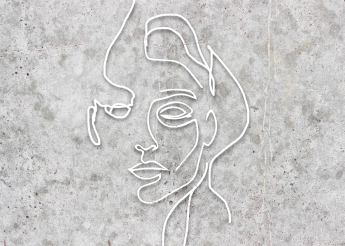It is notable, in many ways, that the spread of the novel coronavirus around the world makes the prison environment increasingly challenging for the lives of those subjected to this space. According to the World Health Organization (WHO), the forms of transmission of the disease caused by the new coronavirus occur through the air, through droplets expelled through the mouth while speaking, sneezing or coughing, as well as through physical contact, such as handshakes and hugs and also by contact with unsanitised infected surfaces. Therefore, the best ways to prevent this virus are: constant hand sanitation, either with water and soap or alcohol gel, and social isolation in order to avoid agglomerations.
Therefore, contamination by COVID-19 in the entire Brazilian population can occur very easily, mainly due to health issues and access to financial resources, which prevent proper hygiene. Since, according to 2017 data from ABCON and SINDCON, only 52% of Brazilians have access to basic sanitation and 17% do not have access to drinking water, in penitentiaries across the country the scenario is no different.
Given this, some factors are even more visible. Despite the number of deaths attested by COVID-19 being underreported, for example, until May 2020, only 0.09% of the incarcerated people were tested for the virus due to the absence of a specific test, Brazil ranks fourth in number of deaths by COVID-19 in the prison system.
The National Council of Justice, in compliance with the recommendations of WHO and observing the existence of risk groups in the prison population, drew up the Recommendation 62/2020, which lists decarceration measures to prevent damage and guarantee the rights of prisoners and family members.
Although the National Council’s Recommendations are not binding, the Federal Supreme Court proclaimed that they should be observed by judges. Also, the Ministries of Health, Justice and Public Security resolved in an Ordinance on the mandatory compliance with measures to combat the pandemic. However, the scenario shows not only the failure to follow the recommended measures, but the actual increase of the incarcerated population.
In São Paulo, judicial decisions reaffirm imprisonment as the current punitive mode, exposing people to degrading and cruel penalties, as well as to a great risk of COVID-19 infection. In addition, the Criminal Procedure Code defines as a crime in its articles 132 “to expose the life or health of others to direct and imminent danger” and 267 “to cause an epidemic, through the spread of pathogenic germs”, externalising the concern and the responsibility for the spread of disease and the exposure of others to it.
Contrary to the recommendations, the Penitentiary Administration Secretariat computed that, of the 77 male prisons, 44 had an increase in the number of prisoners during the pandemic period.
Among the incarcerated population, approximately 11,500 are women and make up, in large part, imprisonments that could be replaced by other less harmful measures. Therefore, the freedom and the guarantee of the rights of mothers and pregnant women is an overwhelming need even prior to a global pandemic occurrence and it is even more urgent at this moment.






